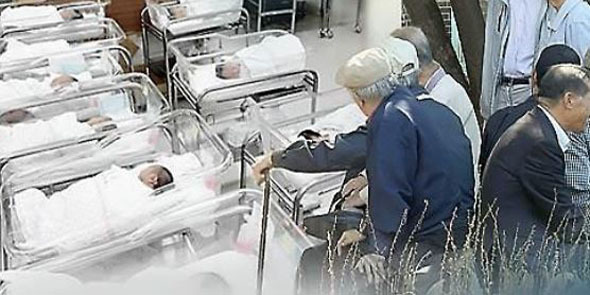South Korea's total population rose slightly last year, but senior people outnumbered children for the first time in history amid a rapid aging trend, a national census showed Thursday.
A total of 51.27 million people lived in South Korea as of Nov. 1, 2016, up 0.4 percent, or 200,000, from a year earlier, according to the 2016 census by Statistics Korea.
The agency started to hold a census based on the national resident registration records every year starting from 2016, with the conventional person-to-person survey to be conducted every five years.
 |
(Yonhap) |
Out of the total, the number of South Korean nationals reached 49.86 million, while foreign residents who stayed in the country for at least three months totaled 1.41 million, accounting for 2.8 percent.
Some 49.5 percent of South Korea's population lived in the capital city area that covers Seoul, Incheon and Gyeoggi Province.
Seoul saw its residents decline 1 percent to 9.8 million last year, while people in Gyeonggi Province rose 1.5 percent to 12.67 million. Busan, the country's second-largest city on the southeastern coast, was home to 6.7 percent of the population, or 3.44 million people.
The study showed that South Korea is aging at a rapid pace as people aged over 65 years rose 3.1 percent to 6.78 million last year, making up 13.6 percent of all its citizens.
It is the first time that the number of seniors surpassed that of the youth aged zero to 14, which amounted to 6.77 in 2016.
As a result, South Korea's aged-child ratio, referring to the percentage of those over 65 to children between 0 and 14, soared to 100.1 in 2016, up from 95.1 tallied a year ago.
The agency said the surge is attributable to the country's fast aging population coupled with a low birthrate, which fell to a seven-year low in 2016.
There were a total of 19.84 million households in the country last year, with an average of 2.51 members. One-member households were the main family type in 2016, accounting for 27.9 percent, while the typical four-member families took up 18.3 percent.
Nearly half of South Korean families reside in apartments, with 9.4 million households, followed by 34.3 percent living in detached houses. (Yonhap)








